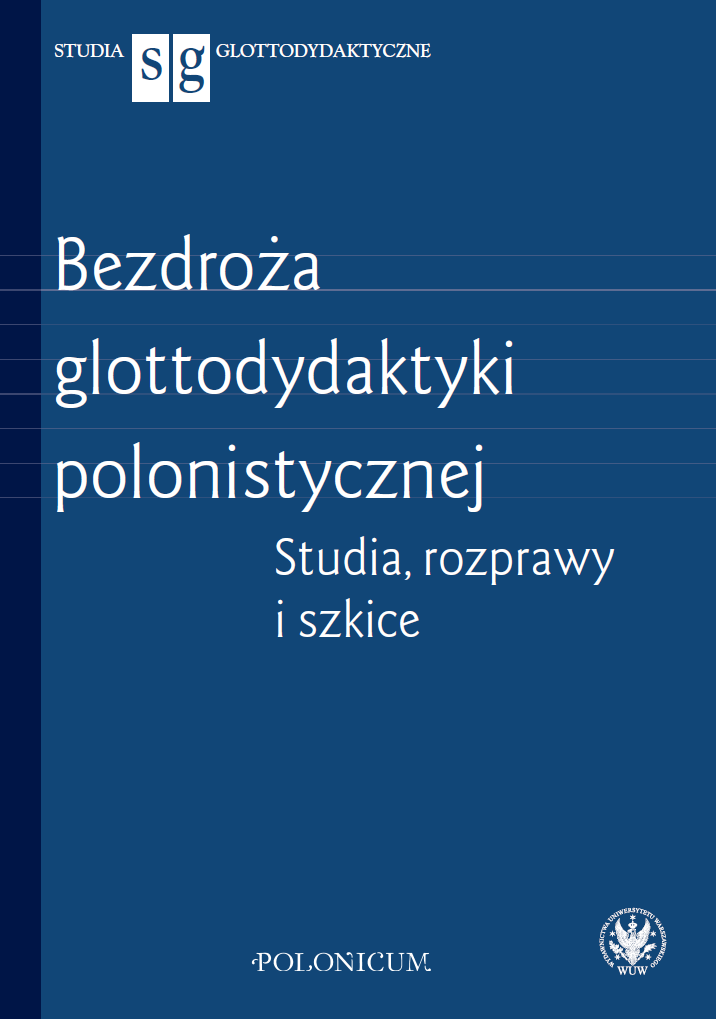Współczesne reportaże o cudzoziemcach w Polsce jako antidotum na glottodydaktyczne bezdroża bezkrytycznego szerzenia mitu polskiej gościnności
Contemporary Reportages on Foreigners in Poland as an Antidote for Unwitting Propagating the Myth of Polish Hospitality
Author(s): Justyna Zych
Subject(s): Theoretical Linguistics, Applied Linguistics, Studies of Literature, Polish Literature, Philology
Published by: Wydawnictwa Uniwersytetu Warszawskiego
Keywords: reportage; Polish as a foreign language; foreigners; refugees; hospitality; multiculturality
Summary/Abstract: In the article, the author observes that in spite of the teaching programme guidelines, current political and societal issues are rarely addressed during Polish language classes for foreigners. She claims that this situation is due to purposefully avoiding any difficult and potentially controversial topics, especially the ones that could put Poland in a bad light. The example given by the author is the myth of Polish hospitality which turns out to be, to a large extent, superficial when confronted with contemporary challenges, i.e. migration and refugee crisis. During Polish language classes, the author proposes a critical reflection on the self-stereotype of Polish hospitality through discussions and exercises based on contemporary Polish non-fiction literature. Her proposition for C1 and C2 level Polish as a foreign language classes is a choice of fragments of three reportages (literary journalism) on foreigners living in Poland, namely "Król kebabów i inne zderzenia polsko-obce" [The King of Kebabs and Other Polish-Foreign Clashes] by Marta Mazuś, "Tamtego życia już nie ma. Reportaże o uchodźcach w Polsce" [That Life Is Gone. Reportages on Refugees in Poland] by Marta Zdzieborska, and "Skóra. Witamy uchodźców" [Skin. Refugees, Welcome!] by Iza Klementowska. The author emphasizes that these texts constitute a good starting point for an uneasy yet necessary discussion on reasons and manifestations of xenophobia. She also remarks that they contribute to shaping the attitude of tolerance and openness to other cultures among students. Finally, the author underlines that some fragments aptly illustrate the phenomenon of multiculturality, which is more and more common in the contemporary world, including Poland. A detailed analysis of the chosen fragments is followed by proposals of exercises for reading comprehension, for developing speaking and writing skills, as well as for broadening vocabulary.
Book: Bezdroża glottodydaktyki polonistycznej. Studia, rozprawy i szkice
- Page Range: 34-64
- Page Count: 31
- Publication Year: 2021
- Language: Polish
- Content File-PDF

